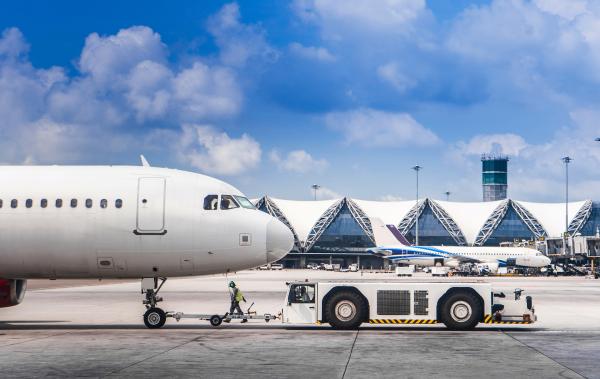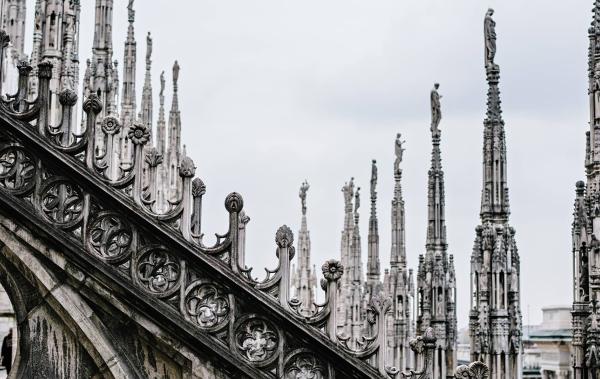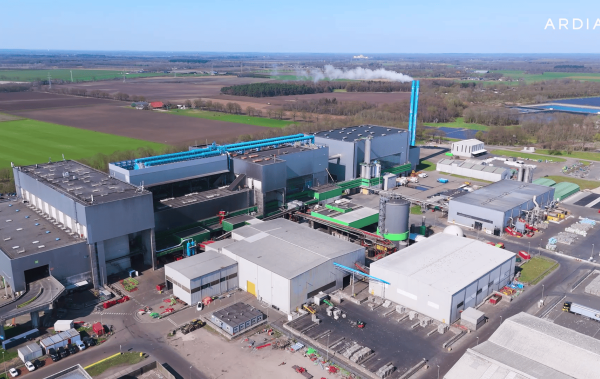Towards a carbon neutral future. A transformational investment opportunity with Nevel
Growth stories
Towards a carbon neutral future. A transformational investment opportunity with Nevel
-
02 February 2023
-
Real Assets
-
Infrastructure
-
Helsinki, Finland
Reading time: 13 minutes
MUSIC
When you’re a world-leading private investment house, there’s more to your business than market growth. It’s about connections, relationships.
Ardian, a French-based private investment company, is constantly building its portfolio - to strengthen its partnerships, offer its expertise and remain true to the spirit of entrepreneurship.
Welcome to Entrepreneurial Journeys, a podcast all about Ardian’s commitment to building better business, together. In each episode, we’ll learn about Ardian’s growing global network.
I’m your host, Colette Davidson.
MUSIC
Thomas Luther:
Low carbon today, it's not only to be morally and environmentally doing the right thing, but I think it's really the thing where business has to be. Simply so. You're out of business in the long term future if you don't do that.
Eero Auranne:
Finland is a northern country and we do have cold winters and heating is really an important factor for the whole society. Historically, the heating has been produced by combusting fossil fuels mostly. And to me, Nevel actually is, will be, the first company, forerunner, to decarbonize the production fleet of heat generation.
MUSIC
Intro
Nevel, based just outside Helsinki, Finland, specializes in industrial energy solutions and district heating - an underground network that can heat multiple buildings with hot water from a central plant.
The company operates over 150 heat and power plants, as well as more than 40 district heating networks across Finland, Sweden and Estonia - all while remaining committed to the transition towards carbon neutrality.
But in recent years, Nevel has focused its efforts not only on reducing its carbon footprint, but on improving its profitability. That’s when Ardian stepped in.
Since 2020, when Ardian acquired 100% of Nevel’s shares, Ardian has watched Nevel’s market growth increase, while staying true to the company’s ESG and client-driven goals.
I went to Finland to meet with Nevel’s CEO, Thomas Luther, its Chairman, Eero Auranne, and two of their partners at Ardian: Simo Santavirta and Daniel von der Schulenburg, to learn more about the NEVEL - ARDIAN collaboration.
Eero Auranne:
Back a few years ago, Nevel used to be a division of a state owned enterprise who was focused on peat fuel production. The role of this Nevel division was to utilize the peat, combust it in boilers and deliver the district heating to towns.
Eero Auranne is the Chairman of Nevel. He explains how Nevel made its green energy transition, with the help of Ardian.
Eero Auranne:
Two years back, Nevel was carved out and privatized and Ardian was the successful acquirer. And for Ardian it is an investment case in green energy transformation. Because Nevel was a big fossil fuel user and had an established market position, it is an ideal target to decarbonize the operations. It's relatively easy to switch the fuel mix from fossil to biofuels with Nevel's existing production capacity and therefore achieve quick and sizable transformation impact to green energy.
Nevel is working to transition away from peat, a fuel that has been shown to be highly carbon inefficient.
Thomas Luther, the CEO of Nevel, says that the decision to go green was more than just a business choice. He explains what this transition looks like in practice.
Thomas Luther:
We want to get rid of peat over time and we've installed a lot of technical equipment as well, like flu gas condensers, which brings efficiency and takes down the emissions at the same time, we are, for example, also taking down the emissions on real big terms. So we've done in a couple of years -76% of our own emissions, so it's a significant improvement and we are tracking for 62 kilotons by 2023. I think that's really real stuff ongoing.
I think we have an opportunity to take our customers on that journey. And why working with Nevel? It’s because of that. We can take them on an ESG journey. And I see many industries or even municipalities, that have big question marks about what to do, how to do, with what money, and there we can help a lot.
MUSIC
Simo Santavirta:
This sector has been of interest for us for a long time.
Simo Santavirta is the Senior Managing Director and Head of Ardian Infrastructure Asset Management.
Simo Santavirta:
However, it's also a pretty competitive sector where asset prices can be high. In Nevel, I guess what we saw was an unpolished diamond with significant potential, together with a great ESG story for decarbonizing, as Eero already mentioned, while at the same time using the company as a platform for significant growth.
Colette:
Eero Auranne, what is your experience in working with Ardian on how the company approaches ESG, and what specifically does this mean for Nevel?
Eero Auranne:
For Nevel, it's a business opportunity to make ESG as its core business and value proposal to its customers and that very much ties up with Ardian’s approach. ESG comes first, then it comes to business strategy and then the numbers are the underlying facts.
Colette:
Daniel von der Schulenburg, is Senior Managing Director and Head of Ardian Infrastructure, Germany, Benelux and Northern Europe. I asked him how he helped Nevel develop its industrial plan and what his strategy has been.
Daniel von der Schulenburg:
Well, the first step was really to complete the carve-out and separation of Nevel from the original business that it was part of.As we mentioned earlier, it was part of a state owned group, a publicly owned group. So the first step was to really separate it properly and make it a stand-alone commercial organization. And these kind of carve-outs, or, almost privatizations, are complex, but we also like them because they normally mean that there is still opportunity to improve this business, to bring it forward and to grow it... So the first step was to do this, we completed this at the end of 2021. And the second step was to start implementing the industrial plan. And it is really focused on improving the existing operations, boiler efficiency, network optimization, heat losses, so really making the existing assets more efficient, investing more heavily in the existing infrastructure.
According to Daniel von der Schulenburg, NEVEL was a unique investment opportunity.
The business was to some extent under-invested and this is actually a program that's quite unusual for a financial investor. We started ordering some of the equipment for this, some of the fuel gas condensers, even before the transaction had closed. So being quite strategic, almost like an industrial in a way, “we know we will need this, so let's order it”. The beauty of it is obviously this is now being implemented and still being executed, and it makes the network more profitable while at the same time reducing emissions because we're making the network more efficient. So it's really a win-win situation and it kinds of perfectly fits the strategy.
Colette:
So it sounds like it was really a transformational investment on several levels, both on the sustainability aspect but also on the growth platform. What are some of the value drivers as you look ahead to working with Nevel?
Daniel von der Schulenburg:
I think for the value drivers, there are two really big growth areas that we focus on, and one is what we call industrial energy services. So this is really installing clean energy solutions with industrial customers. These could be food businesses, metal businesses, all kinds of industrial businesses that are looking to reduce their CO2 emissions but also realize energy savings. So we would install new energy systems with them, often in heat or other areas, and then sell that energy to them through long-term contracts. And this is obviously an area that Nevel has been active in in the past, but we are really focused on accelerating that growth.
Colette:
Thomas, you've expanded your growth to Sweden as well. What does that picture look like? And how has Ardian helped to boost that market?
Thomas Luther:
Nevel has operated in Sweden for some time, but I think the true investments are now the ones we've done during our time with Ardian. There's a lot of industrial background from Sweden, so we get the market picture quite well there and we see and predict that Sweden will be, in a few years’ time, a bigger market for us than Finland. And of course, with the company like Ardian backing us up and the muscles we have on the financial side and the ambitions will help us on that journey. So really, to triple size compared of where it is now. And in Sweden, it's like a market, there are similar challenges and possibilities than Finland. So really decarbonizing the industrial operations there and decarbonizing also the real estate side of the business is a great potential for us.
Colette:
Simon Santavirta, let's come back to you. What about digital platforms? Is this an avenue that you're looking to explore?
Simo Santavirta:
So Nevel actually offers and uses itself its remote operation services platform, which is a digital solution for remote operations for district heating plants. This was actually one of the things that attracted us already before we made the investment. And it's quite a unique 24/7 service which gives us an opportunity to centrally optimize production and offsite operations. This all happens here in Tikkurila where we are now, where the operators also then gather all the data needed to optimize operations and for example, timing of preventive maintenance using machine learning solutions. So this is a great example of how we want to optimize operations for all our assets across the portfolio. And Nevel is certainly at the forefront of this.
MUSIC
Value drivers, ESG and solutions for a bright future. That’s what the Ardian-Nevel partnership is founded on.
But Nevel’s market growth would be nowhere without their commitment to building genuine and lasting relationships with their customers, who are also committed to climate positive energy solutions, says Nevel’s CEO Thomas Luther.
Thomas Luther:
I always think customer’s and people’s stories are exciting. And we have a specific customer story, where we've had a long negotiation, with a company called Stora Enso. It's a really big company specialized in paper and good products. And what we did, is that there's in northern Finland, a partly shut down plant where they used to produce paper a couple of years ago and we had negotiations with the customer. And as the first step with Stora Enso, we took over the district heating and boiler and were able to start to make that production to district heating to the local community. And of course we will make that greener with investments. And then also we're producing steam to Stora Enso who is still operating a sawmill at the site. The next phase was actually very close by to the first phase. We've taken over the next part of the industrial site, which includes the water utility, which is really exciting, and then heat and steam production. And that customer is a company called Infinited Fiber Company, which is actually reusing textiles to produce new material. So this is a big circular economy case for us. And of course on that site, we use the residuals from the sawmill production as well to generate heat and steam.
I think you know where we want to be, we want to be a genuine customer service company that takes the customers on a journey. We want to look into sustainable energy, steam, water, electricity and important circular economy solutions. So really great solutions coming and a lot of secrets which I can't tell about at this moment, but good stuff coming.
Colette:
Alright, thank you so much. Eero Aurane, Simo Santivirta, Thomas Luther and Daniel von der Schulenburg.
Music
Outro
Thanks for tuning into Entrepreneurial Journeys, a podcast from Ardian.
Listen on Apple Podcasts, Spotify, Deezer, or wherever you get your podcasts. And for more information, visit Ardian.com. If you liked this episode, don’t hesitate to leave a comment on Apple Podcasts and talk about it with your friends and colleagues. See you soon!
Nevel, based just outside Helsinki, Finland, specializes in industrial energy solutions and district heating - an underground network that can heat multiple buildings with hot water from a central plant. Ardian, which acquired the company in 2020, saw in Nevel “an unpolished diamond with significant potential”. Today, Nevel is working to transition away from peat fuel to reduce its carbon footprint. The industrial plan put in place to achieve this transition allows the network to be greener, more efficient and more profitable, as testified by Nevel’s market growth.
Our journalist Colette Davidson went to Finland to meet with Nevel’s CEO, Thomas Luther, its Chairman, Eero Auranne, and two of their Ardian partners working within the Infrastructure activity: Simo Santavirta and Daniel von der Schulenburg, to learn more about the collaboration between Nevel and Ardian, and this successful decarbonization journey.
Nevel will be the first forerunner company, in decarbonizing the heat generation fleet.
Low carbon today is not only about doing the right thing morally and environmentally, but you are out of business in the future if you don't live up to it.
In Nevel, I guess we saw an unpolished diamond with significant potential, together with a great ESG story for decarbonization, while using the company as a platform for meaningful growth.
The beauty of it is that it makes the network more profitable while reducing emissions because we are making the network more efficient.
Entrepreneurial Journeys is a podcast about Ardian’s commitment to building lasting change, by partnering with managers to build resilient, high-quality businesses that are fit to face the future.
This podcast is hosted by Colette Davidson and produced by Louie Creative for Ardian.
Tune in on iTunes, Deezer, Spotify, or wherever you get your podcasts - and join us for an inside look at where the world is going next. For more information about the podcast, follow us on LinkedIn, Twitter, and on our website.
Our podcasts are accessible to all thanks to the written transcriptions of the episodes available on our website on each episode's landing page.







